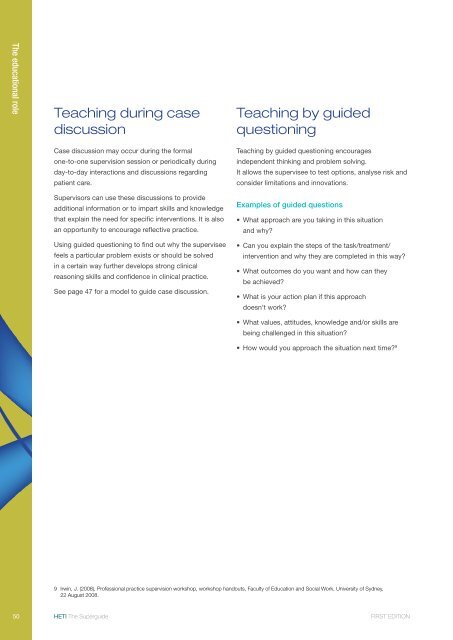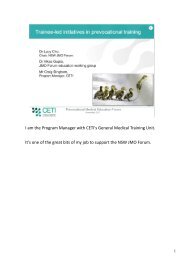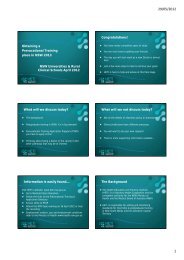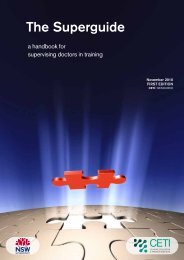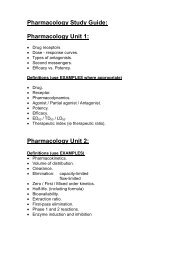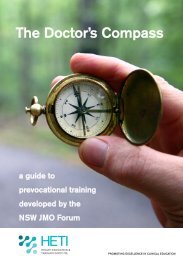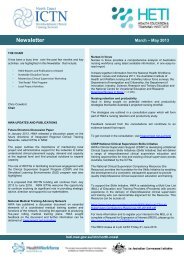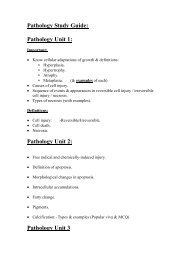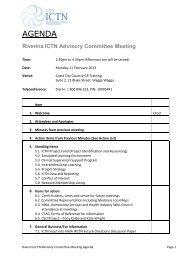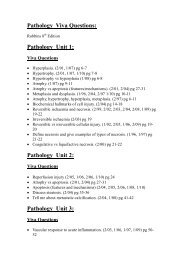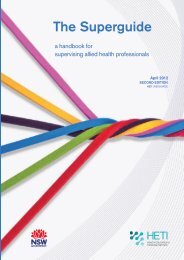Open - HETI - NSW Government
Open - HETI - NSW Government
Open - HETI - NSW Government
- No tags were found...
You also want an ePaper? Increase the reach of your titles
YUMPU automatically turns print PDFs into web optimized ePapers that Google loves.
The educational roleTeaching during casediscussionTeaching by guidedquestioningCase discussion may occur during the formalone-to-one supervision session or periodically duringday-to-day interactions and discussions regardingpatient care.Supervisors can use these discussions to provideadditional information or to impart skills and knowledgethat explain the need for specific interventions. It is alsoan opportunity to encourage reflective practice.Using guided questioning to find out why the superviseefeels a particular problem exists or should be solvedin a certain way further develops strong clinicalreasoning skills and confidence in clinical practice.See page 47 for a model to guide case discussion.Teaching by guided questioning encouragesindependent thinking and problem solving.It allows the supervisee to test options, analyse risk andconsider limitations and innovations.Examples of guided questions• What approach are you taking in this situationand why?• Can you explain the steps of the task/treatment/intervention and why they are completed in this way?• What outcomes do you want and how can theybe achieved?• What is your action plan if this approachdoesn’t work?• What values, attitudes, knowledge and/or skills arebeing challenged in this situation?• How would you approach the situation next time? 99 Irwin, J. (2008), Professional practice supervision workshop, workshop handouts, Faculty of Education and Social Work, University of Sydney,22 August 2008.50 <strong>HETI</strong> The Superguide FIRST EDITION


